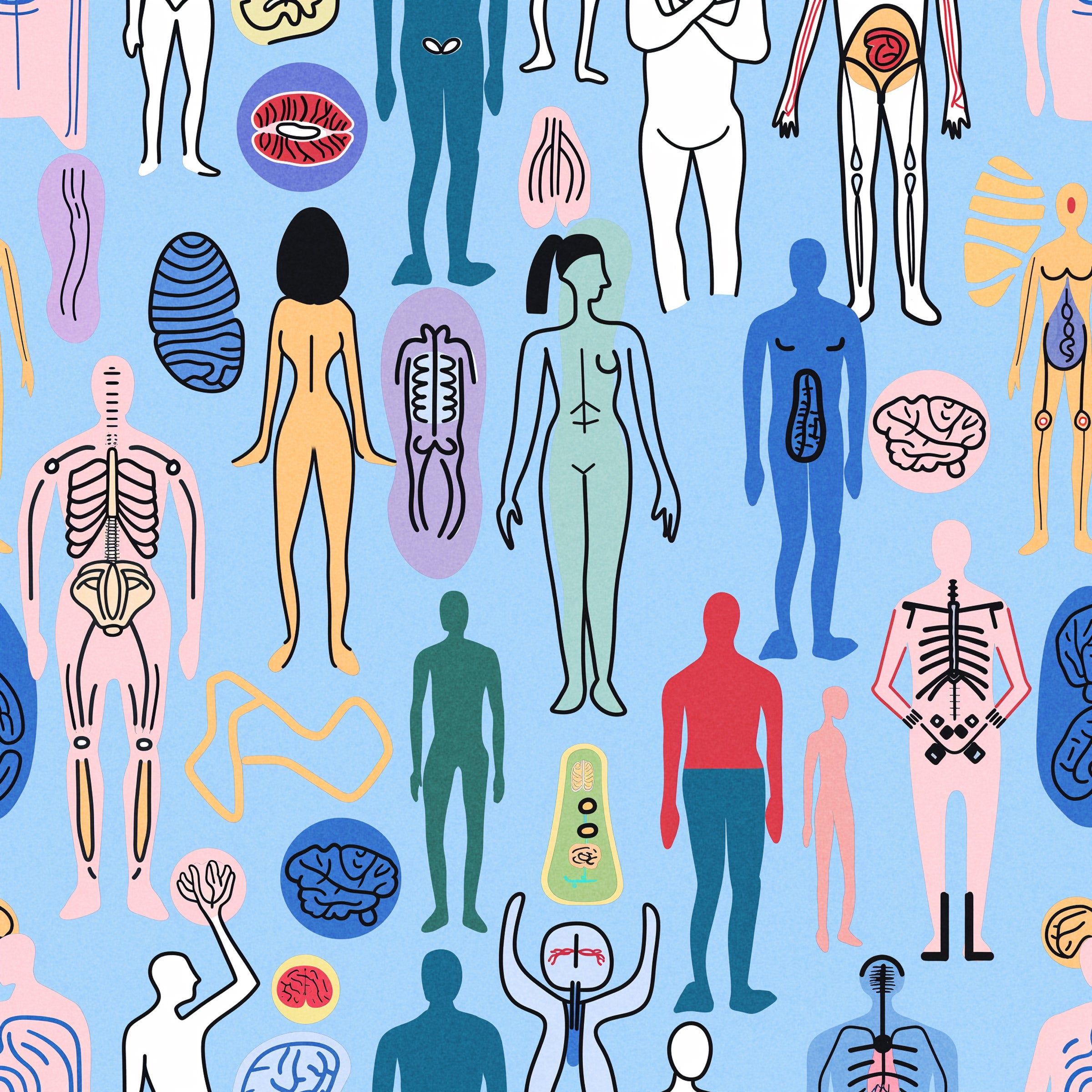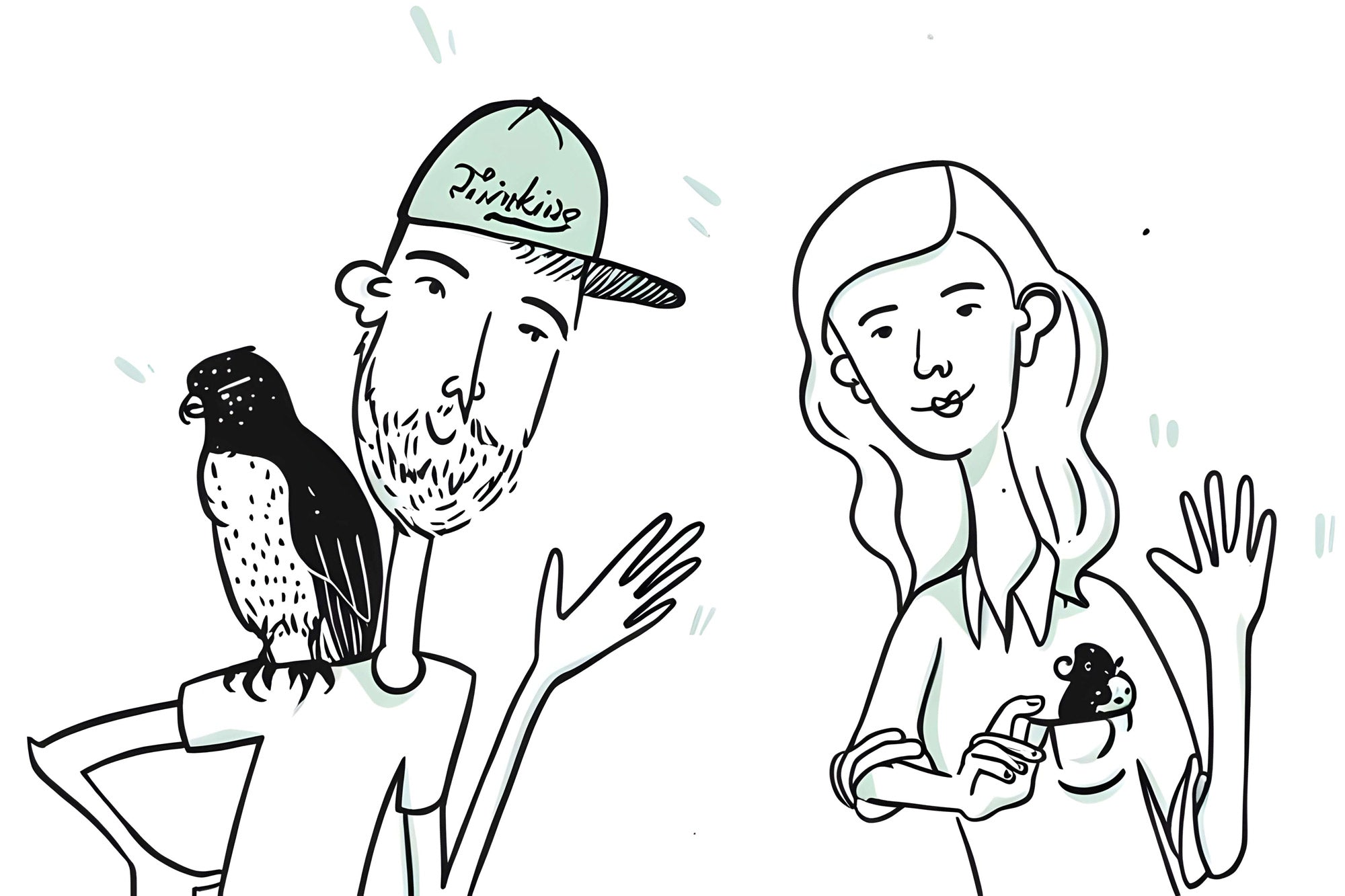
Fun Facts About Me: A Human Being
Humans are interesting beings. Probably the understatement of the century. We’re also filthy and disgusting earth-dwellers like the rest of our mammal kin. The big difference is that we realize this (or have the capacity to realize this). But I'm not talking about our nastiness, I'm talking about how absolutely unique and amazing the human species is! AI doesn’t stand a chance.
Here are 30 crazy fun facts about humans:
1. A human heart pumps enough blood in a year to fill an Olympic sized swimming pool.
Fun fact, an Olympic sized pool holds 490,000 gallons of pool water. It is normally 165 feet long by 56 feed wide. That holds 8 spacious lap lanes. So now imagine that full of blood.
2. A red blood cell lives for around 4 months, traveling between the lungs and other tissue roughly 75,000 times before it returns to the bone marrow to die.
So in a way, bone marrow is the community cemetery for hard-working red blood cells. Is that sad?
3. Messages from the human brain travel along the nerves at a speed of approximately 200 MPH.
For the elite humans, these signals can get up to 250 MPH. That's over 400 kilometers per hour for our non-USA friends.
4. By age 60, the average person has lost half of their taste buds.
Generally we humans get about 10,000 buds at birth. By age 60, we're down to about 5,000. The remaining also shrink in size. Basically older folks are not as sensitive to the 5 tastes. Keep that in mind the next time you watch Great British Baking Show!
5. An average person spends 25 years of their life asleep.
Fun fact, the average human dumps around 880 pints of various liquids (mostly sweat) into their mattress in a 5 year period. So that's about 132 gallons. Much of this evaporates, but it leaves a damp breeding ground for fungi, mites and other unsavories. The good news is that this has always been the case, and it's not really a big deal. Just may TMI!
6. The body of a person who weighs 154 pounds (70 kilograms) contains 0.2 milligrams of gold.
Before you get too excited, gold is worth about $1800 per ounce (that stat is always changing BTW). So if we apply some math and divide 2/1,000,000 ounces, we get about $0.0036 of gold. Interesting, but its not enough to buy... anything.
7. If your DNA was fully stretched out, it could reach the Moon 6,000 times.
That's right about 1,433,400 million miles. If you insist on a straight line, that is around how far away Mars is from Earth (depending on the orbits).
8. If a person with an average lifespan sleeps for eight hours per night, they will spend around 229,961 hours asleep.
Because we know you love math, we can also calculate that this hour total is around 25 years. Based on the average lifespan (77.5 years in the USA), humans sleep around 33% of that. That sounds like a lot, but a cat sleeps away 60% of their nine lives, so we're doing alright.
9. In a lifetime, the average person walks a distance that's equivalent to traversing the entire planet two times.
The equatorial circumference of Earth is 24,901.4 miles, so humans walk around 50,000 miles in a lifetime. Honestly, I'd think it would be more, but I'm a nut. If you're trembling with flat-earth rage at this fun fact, try reading our post with 12 fun facts that prove the Earth isn't flat.
10. Our eyes can detect more shades of green than that of any other color.
Without getting too deep into the weeds with the rods and cones in our eyeballs (you can dig deeper here), it is proven that humans have a heightened sensitivity to the green/yellow wavelengths. This is likely an evolutionary skill developed to help us better forage in Earth's forrests.
11. Our bodies produce enough heat to boil just under half a gallon of water.
Surprisingly enough, half a gallon (or 8 cups) is the average size of a pot of coffee or moka pot. So, you could say that humans generate enough body heat to boil up a pot of coffee.
12. The average human brain can hold around 4 terabytes of data; however, a genius' brain can hold about 100 terabytes of data.
A terabyte is 1,000,000,000 kilobytes. The computer in the Apollo Guidance Computer (AGC) had a combined storage capacity of around 120 kilobytes. Yes, that was 1966, but it is still an incredible fun fact!
13. The average person contains enough iron in their body to make a 1-inch long nail.
Besides iron (and gold as we mentioned), we humans also have the following metals inside us: sodium, potassium, calcium, magnesium, manganese, cobalt, nickel, copper, zinc, molybdenum, and chromium. There may also be unsightly heavy metals or other traces (like lead), but we won't go there now.
14. Just like with our fingers, every person's tongue has a unique print.
Let's just be glad that when we go to the police station or get a passport we don't have to lick an ink pad and paper.
15. The number of times we blink each day is equivalent to having your eyes closed for about thirty minutes.
The takeaway here is that we blink A LOT. The average human takes .1 to .4 seconds to rock a full blink, and we do this about 15 to 20 times per minute. Doing some back of the napkin math, that is 900 to 1200 blinks per hour. All of the sudden, 30 minutes of extra eyes-closed time doesn't sound so crazy.
16. We all gain about half an inch in height when we wake up, but lose it by the end of each day.
This is due to the effects of gravity. To further prove the point, after spending nearly a year on the ISS (International Space Station), astronaut Scott Kelly returned 2 inches taller than his identical twin brother. This is due to the utter lack of gravitational forces on Scott's body.
17. When you dream, part of your brain creates a story while another part of your brain experiences them and is surprised by plot twists.
If that weren't enough, the average dream length for a human is around 5-25 minutes. These often happen during REM sleep, but can cascade into other sleep cycles.
18. Every part of our body can repair or regenerate itself except for our teeth.
Keeping your teeth healthy is certainly worthwhile. The average American will spend around $360 a year for dental healthcare. A recent study found that we can expect to pay around $51,000 during a lifetime in dental related costs (insurance premiums, out-of-pocket expenses, surgeries). Thats a lot of cheddar to keep those chompers chompin'.
19. When we listen to music, our heartbeat synchronizes with the rhythm.
So if the average resting heart rate thumps at 60-100 BPM (beats per minute), listening to music would certainly raise it up since most pop tunes are between 95-160 BPM. Though that comment doesn't include half-time or double-time counts!
20. More than 90% of diseases are caused or complicated by stress.
If you DON'T think you have stress... good on you. For the rest of us, science has found a good way to measure this. It is called the PSS (perceived stress scale). To get your PSS, you take a short 10-min test and it spits out a number between 0-40. 0-13 is considered low stress, 14-26 is moderate stress and beyond that is OH I CAN'T STAND THE STRESS! Here's the stress test if you are interested.
21. If the average man never shaved his beard in his lifetime, it would grow more than 30 feet, which is longer than a killer whale.
Lets ignore how disgusting that sounds for a moment. Fun fact: a wig requires at least 10 inches of donated hair, with 14 inches being even better. So if a man grows a beard for his entire life and then cuts it off and donates it, that's roughly 30 wigs.
22. We all produce enough saliva in a lifetime to fill an average-sized swimming pool.
Lets break this down. Humans will make between .5 to 1.5 liters per day of saliva. Plug that into a nifty equation (x 365 days x 75 years) and we get 13,700 - 41,100 liters per lifetime. I had to go metric there for a sec, but that is 25,000 - 35,000 quarts on average (or 6,250 - 8,750 gallons).
23. An average person consumes about a ton of food and drink every year.
That is a lot of through-put for a human. We can assume that what comes in must go out... so... If you want to learn more about THAT topic, here's an article all about poop fun facts.
24. Your stomach's hydrochloric acid is so strong that it can dissolve a nail.
Generally, HCI (Hydrochloric acid) is a real beefcake when it comes to acid power. Chemists say it has a high Ka value (1.3 x 10^6). The higher the Ka value, the stronger the acid. So yeah, it can dissolve lots of stuff.
25. If we were able to eliminate all major instances of cardiovascular disease, human life expectancy would increase by 9.78 years.
Sadly, cardio-related diseases make up 31% of all human deaths. This is shared between heart diseases and strokes. Cut that out of the equation and it is no wonder we'd get almost a decade back!
26. At eighteen weeks, a fetus develops its unique fingerprints.
That is pretty adorable, and I have nothing further to add. 👶
27. The longest recorded time that a person has been without sleep is 11 days.
The subject of the experiment was awake, but stumbled over words, had hallucinations, and kept forgetting what he was doing. This seems like torture, but I guess we learning things for science...
28. Frogs, worms, and potted plants are the three things that women dream about most often during the first trimester of pregnancy.
After childbirth, their dreams (and brains, and bodies) change again due to new hormone levels, sleep deprivation and heightened environmental awareness. For more on that, we got you covered.
29. Countries that drink milk win more Nobel prizes.
According to a 2013 study, countries whose citizens consume the most dairy per capita also win the most Nobel Prizes. Sweden is at the top of the list, with 31.855 prizes for every 10 million Swedes. On average, each Swede consumes 772 lbs. of milk per year.
30. Objects contain every color except the one you think it has because THAT is the only color that doesn't get absorbed and is perceived by our eyes.
That one is nifty to ponder. But if you are ever underwater, you might notice everything looks a bit more blue-ish. This is because water absorbs longer wavelengths of light (red, orange, yellow) more readily that the shorter wavelengths of blue and green. Another fun fact for ya!





